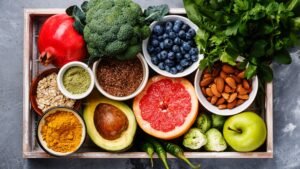
As many countries around the globe enter a second (or even third) phase of Covid-19 restrictions and lockdowns, many of us are asking how we will cope, mentally and physically, this time around. We know that for many people, the greatest challenge during this time is not maintaining physical health, but rather maintaining a healthy state of mind and mental well-being.
Health Report by WHO
At the end of last year, the World Health Organisation (WHO) released a study that shared the mental state of 130 countries around the world. The results were clear; the impact of Covid-19 has led to serious changes in the availability of core health and especially mental health services.
- Over 60% of the countries in the WHO report said that they had experienced disruptions in mental health services for vulnerable people.
- Those vulnerable groups were made up of children and adolescents (72%), older adults (70%), and women requiring antenatal or postnatal services (61%).
- 67% of the countries in the report had disruptions to counselling and psychotherapy.
Disturbingly, these figures tell us that up to 70% of older adults coping with the weight of anxiety, stress, and depression did not have access to health and medical services due to Covid-19.
The Truth About Anxiety
So, what exactly is anxiety? And is there anything we can do to manage the symptoms when we are not able to access the health care we need?
Anxiety is the big brother of fear. It usually manifests in human beings as rapid or increasing heartrate, sweating, sleeplessness, or even migraines. It’s something that most of us have experienced; that stomach churning feeling of helplessness and overwhelming fear.
Managing Anxiety
How we choose to manage the varying and ever-present degrees of anxiety that is part of our lives will be very different for each and every one of us. Whether we are struggling with the uncertainly of lockdown or learning to cope with the challenges of home-schooling, our own personal history will shape our experience.
Managing anxiety and stress needn’t be a costly and exhaustive effort. Recent studies by Harvard University show that there is a correlation between anxiety and antioxidant levels in the body.
The study showed that certain individuals may be subject to greater anxiety if their levels of antioxidants are low. That’s because antioxidants have the ability to decrease the levels of cortisol, the body’s main stress hormone.
Foods with High Antioxidant Levels
To maintain an optimum antioxidant level, include fruits, berries, nuts, and vegetables in your daily diet. Keep some bright orange Turmeric spice powder in the pantry, as it has excellent antioxidant and anti-inflammatory properties.
Also, try to add the goodness of grapeseed into your diet. For many years, grapeseed extract has been identified as a significantly rich source of antioxidants.
Just a few foods high in antioxidants:
- Blueberries
- Goji berries
- Kale
- Pecan nuts
- Grapeseed extract
Seek Help
As we adapt to a world that is changing rapidly, our best friend right now is hope. We continue to hope for a better tomorrow, and in doing so we owe it to ourselves to take care of our mental and physical health – for ourselves, for our families, and for our community.
Our mental health isn’t always something we can manage alone so please talk to your health professional regularly, especially if you experience regular feelings of anxiety throughout lockdowns and restrictive periods.
And, if the lockdown means you cannot get to your health professional, then seek comfort and conversation in your family, friends, and loved ones.
How often do you feel your anxiety spike up? What is the usual reason? Have you tried eating foods high in antioxidants when you’re anxious or do you go to comfort foods instead? Please share how you manage your anxiety in times of lockdown.





